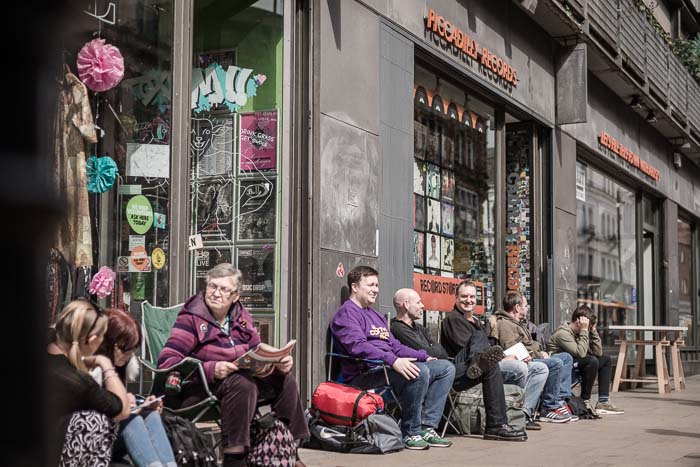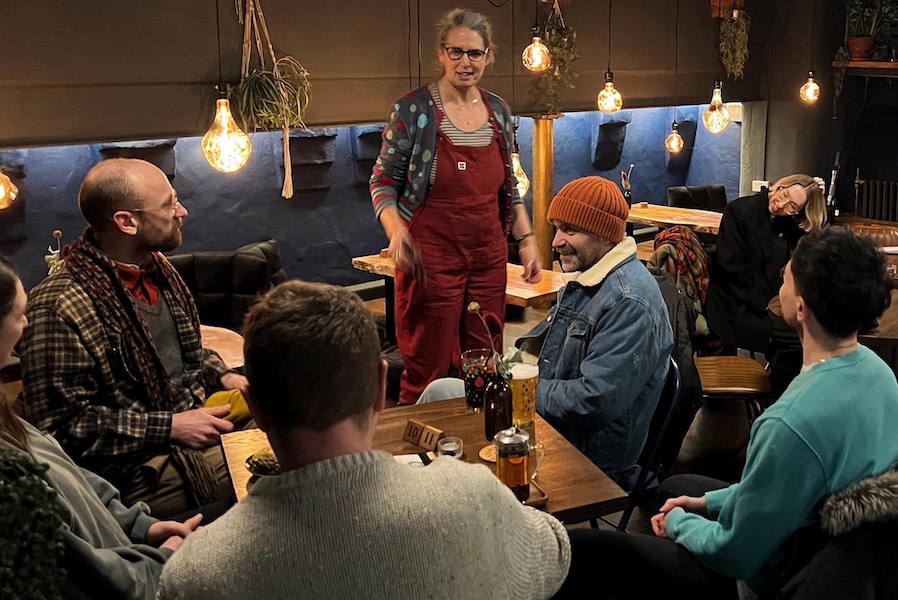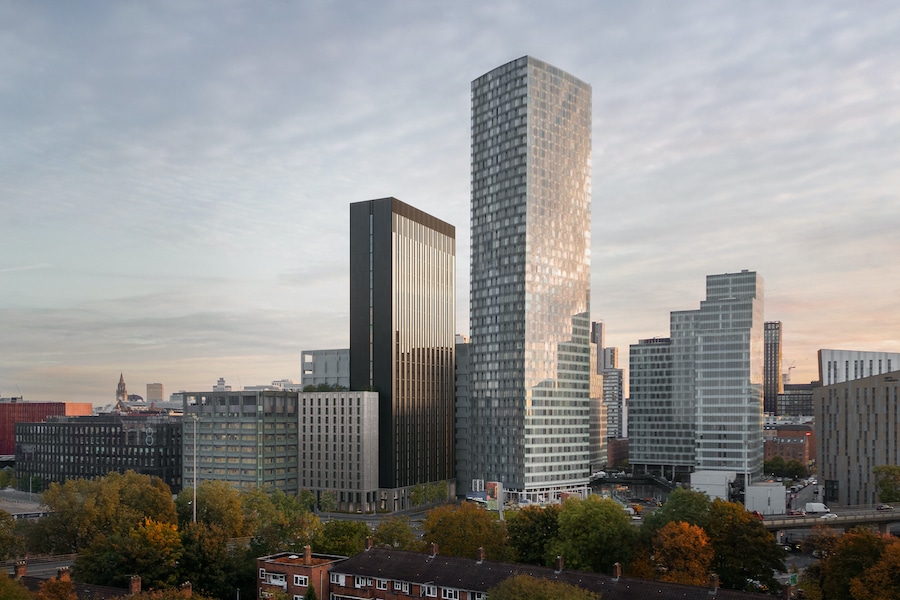Council officers’ engagement helps camp occupants into temporary accommodation
- Written by I Love MCR
- Last updated 12 months ago
- City of Manchester, Civic, Community
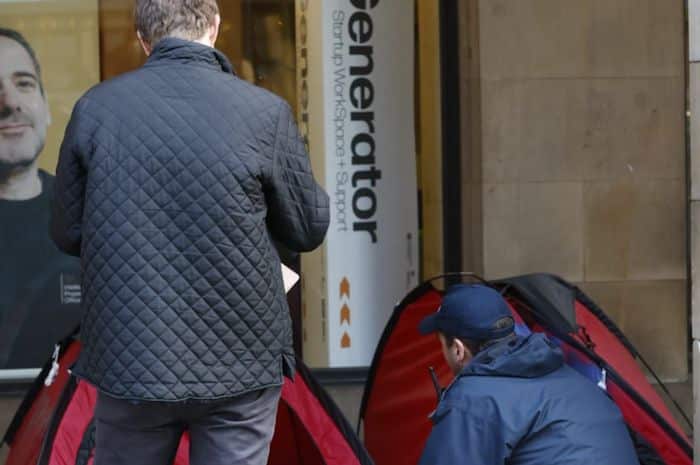
Manchester city council homelessness and community safety staff have carried out an engagement exercise at the camp in St Peter’s Square/Mount Street .
This is a protest camp organised by activists which vulnerable people, both refugees and UK nationals who have been sleeping rough, have been caught up in.
As a result of this morning’s efforts, supported by Greater Manchester Police, 51 people have been helped into temporary accommodation, taking their tents with them.
No preferential treatment
This is in addition to the 40 people who had already been accommodated since the camp was created on 23 March. This is support which was always available to them and they have not been given any preferential treatment relative to other people rough sleeping because of the camp.
Five of those engaged with refused the accommodation on offer and have remained on site. The offer will remain open to those individuals.
Anti-social behaviour
Concerns about the safety of the camp and the people living in it, and their potential exploitation, have heightened. There has been evidence of violent incidents, drug dealing and taking and other anti-social behaviour. Unhygienic conditions which pose a health risk for occupants and the wider public have also been identified with defecation, urination and littering around the camp area.
People trying to access council services in the town hall and city centre workers have also been affected.
Despite initial claims by the organisers that tents would be removed as people were accommodated, the number of tents has only grown with the camp acting as a magnet for people from outside the Manchester area.
Disproportionate
A council spokesperson said: “We are seeing not just refugees who were living in this city or elsewhere in Greater Manchester while they applied for asylum but people who were housed across the country for whom Manchester is a magnet. While we are a welcoming city, this is clearly disproportionate.
“We have not had a penny from the government to deal with this issue despite representations to them including a letter from the council leader and a meeting with the immigration minister to explain the position the city has been put in.
“Despite this we have taken extensive steps to support new refugees including setting up a 40-bed respite centre to give refugees breathing space to find new accommodation and commissioning The Mustard Tree to provide a hub with support around finding employment, education and housing.
“Meanwhile, extensive existing support to help people who are sleeping rough get off the streets remains in place. We continue to work to further increase the availability of accommodation to help people build sustainable new lives”.
Committed to ending homelessness
Deputy council leader Joanna Midgley said: “In Manchester we remain committed to ending homelessness and will continue to fund a wide range of support available for vulnerable and homeless people in the city, and call on national government to do the same.”
“Manchester is a welcoming city where we look out for each other, with a proud history of protest but we cannot welcome an environment where vulnerable people are put at risk and others feel intimidated.
“We know that since the protest camp arrived, people who are homeless and vulnerable have been caught up alongside activists. That’s why the council’s priority throughout has been to offer support and sort out temporary accommodation for anyone in the protest camp who is homeless and willing to accept the help offered. Our outreach teams engage with individuals most days and over 40 people have been supported into accommodation through our normal channels.
“This camp is clearly untenable and not in the best interests of either the vulnerable people in it or the wider community who are impacted by it. That’s why we have done all we can to support all homeless people who have been in the camp and will continue to keep the situation under close review.”
- This article was last updated 12 months ago.
- It was first published on 16 April 2024 and is subject to be updated from time to time. Please refresh or return to see the latest version.
Did we miss something? Let us know: press@ilovemanchester.com
Want to be the first to receive all the latest news stories, what’s on and events from the heart of Manchester? Sign up here.
Manchester is a successful city, but many people suffer. I Love Manchester helps raise awareness and funds to help improve the lives and prospects of people across Greater Manchester – and we can’t do it without your help. So please support us with what you can so we can continue to spread the love. Thank you in advance!
An email you’ll love. Subscribe to our newsletter to get the latest news stories delivered direct to your inbox.
Got a story worth sharing?
What’s the story? We are all ears when it comes to positive news and inspiring stories. You can send story ideas to press@ilovemanchester.com
While we can’t guarantee to publish everything, we will always consider any enquiry or idea that promotes:
- Independent new openings
- Human interest
- Not-for-profit organisations
- Community Interest Companies (CiCs) and projects
- Charities and charitable initiatives
- Affordability and offers saving people over 20%
For anything else, don’t hesitate to get in touch with us about advertorials (from £350+VAT) and advertising opportunities: advertise@ilovemanchester.com
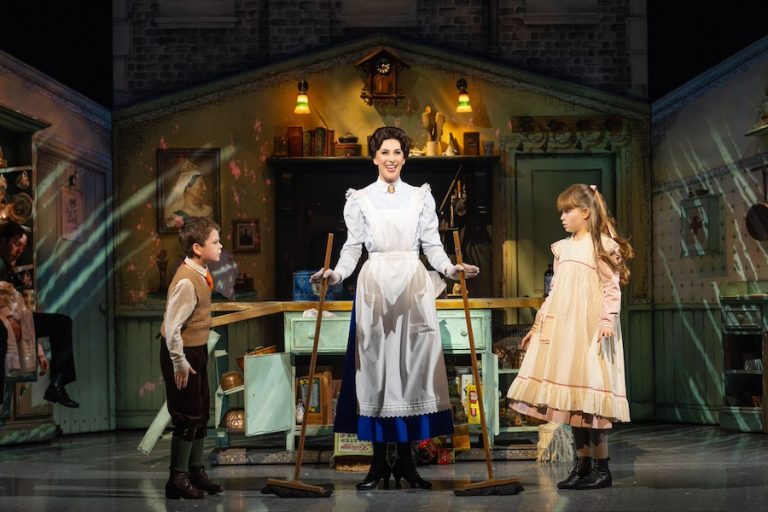
Review: Mary Poppins at Palace Theatre is ‘a whirlwind of whimsy and wonder’
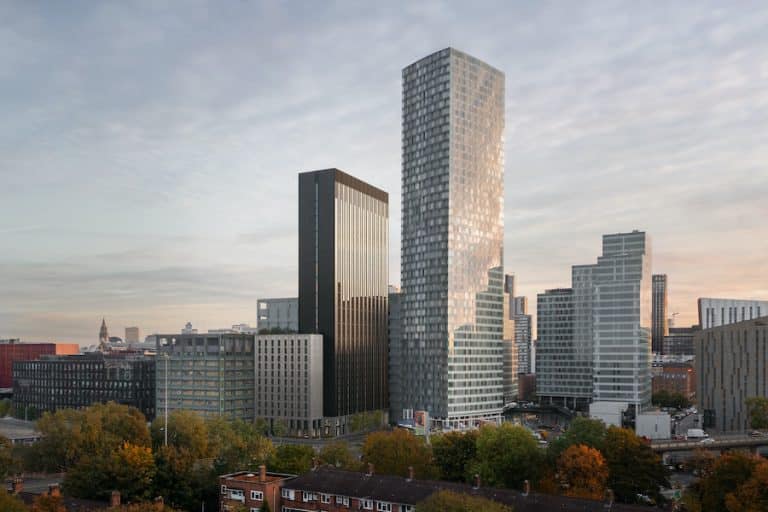

The Manc aerobics queen who trained the Corrie cast is helping raise charity cash

“Manchester is not Britain’s second city, it’s the first” – Jeremy Clarkson
